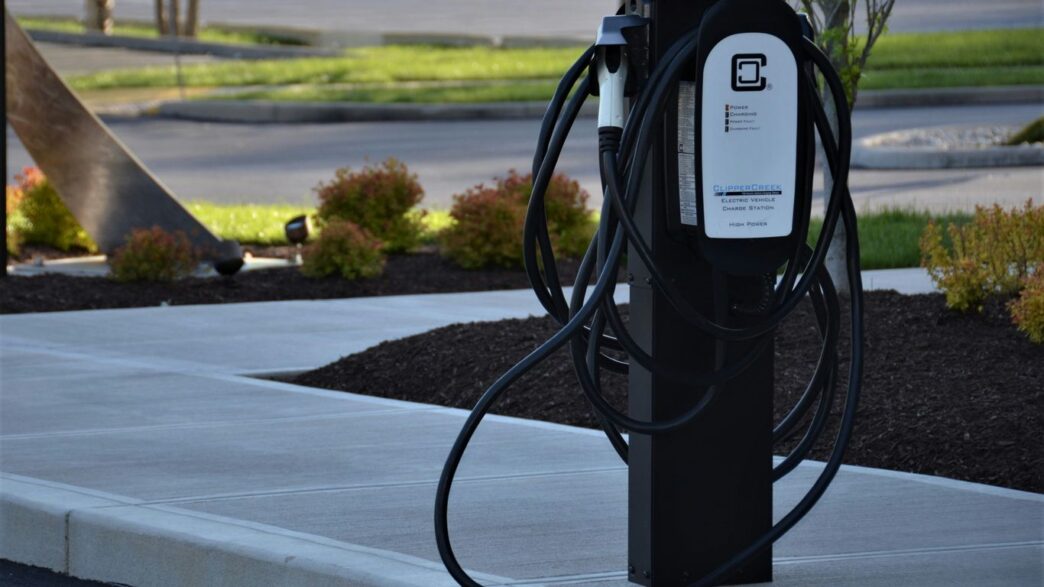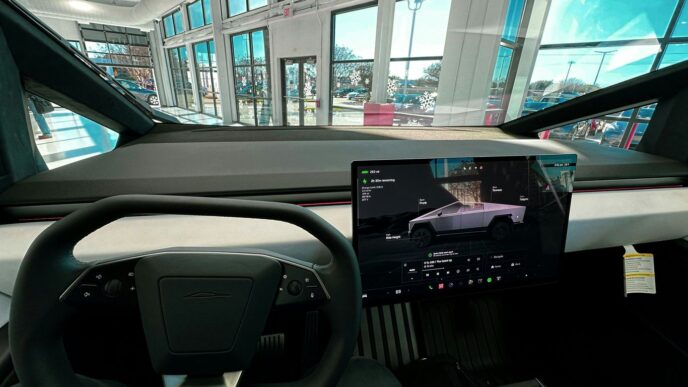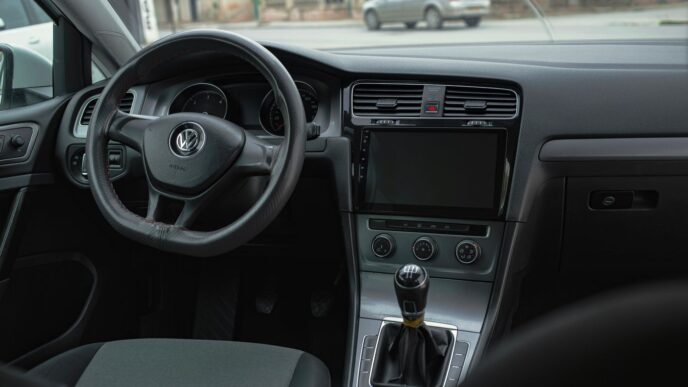Buying a new car can feel like a huge financial hit, and electric vehicles (EVs) haven’t always been the cheapest option. But guess what? Things are changing. More and more electric cars are coming out that won’t break the bank. We’ve put together a list of some of the best economical electric cars for 2025, so you can ditch the gas pump without emptying your wallet. We looked at cars that are actually affordable, not just the super high-end ones. Some of these might even surprise you with how much they cost.
Key Takeaways
- The electric car market is getting more affordable, with many new models priced competitively.
- Government incentives, like the $7,500 federal EV tax credit (though its future is uncertain) and local grants, can significantly lower the purchase price.
- Leasing an EV often makes it eligible for a $7,500 commercial leasing incentive, passing savings to the buyer.
- This list focuses on new electric vehicles, excluding used options, and includes various car types like hatchbacks, sedans, and SUVs.
- Prices and availability of incentives can vary, so it’s wise to shop around for the best deals and check eligibility for tax credits and discounts.
1. Nissan Leaf
The Nissan Leaf has been around for a while, and honestly, in 2025, it’s not exactly the flashiest EV on the block. It looks pretty standard, and its performance specs aren’t going to blow anyone away. But here’s the thing: it can be incredibly affordable, especially if you’re looking for a deal. Nissan has been known to offer some pretty sweet discounts, sometimes even a $7,500 cash rebate.
When you factor in those kinds of incentives, the Leaf can dip into a price range that’s hard to ignore. For some buyers, this could mean a brand-new electric hatchback for around $22,000, which is pretty wild when you think about it. It’s got power windows and four doors, which is more than you can say for some other budget options out there.
However, it’s worth noting that the 2025 Leaf isn’t a huge leap from older models. You’re looking at about 149 miles of range, and its charging speed maxes out at 50 kilowatts. Plus, it still uses the CHAdeMO charging standard, which isn’t as common these days. So, while it’s a decent option for zipping around town or for shorter commutes, you might want to think twice before planning a long road trip.
But if your main goal is to get into an electric car without breaking the bank, and you mostly stick to city driving, the Leaf is a solid contender. It’s a practical choice that proves you don’t need to spend a fortune to go electric. You can find out more about the Nissan Leaf review for detailed specs.
2. Dacia Spring
Okay, so if you’re really trying to keep costs down, the Dacia Spring is pretty much the king of the budget electric cars. Seriously, besides those tiny micro-cars, this is the cheapest full-size EV you can buy right now. It’s a compact SUV, which sounds fancy, but it’s really just a small car that’s big enough for city driving and maybe a small family. If you don’t mind spending a little more than the absolute base price, you can get a top-spec model with most of the tech you’d actually want. It’s a steal, honestly.
Here’s a quick look at what you get:
- Price: Around £14,995
- Range: About 140 miles on a full charge
- Charging: Can get to 80% in about 45 minutes if you’re using a 30kW charger.
This one is definitely best if you’re a family trying to save some cash.
3. Leapmotor T03
Coming from Leapmotor, a newer Chinese automaker that’s teamed up with the big Stellantis group (you know, the folks behind Peugeot, Citroen, and Vauxhall), the T03 is a really small car. It’s definitely a city car through and through. Its quirky looks might not be for everyone, but you get a surprising amount of tech for your money, a decent driving range, and it can charge up pretty quickly for its class.
If you’re mostly driving around town and need something that can squeeze into tight spots, this little guy is worth a look. It’s got a solid range for its size, making it a practical choice for daily commutes without constant charging worries.
Here’s a quick rundown:
- Price: Around £15,995
- Range: Approximately 165 miles on a full charge
- Charging: Can get from 20% to 80% in about 52 minutes with a 48kW charger
- Best for: Navigating busy city streets and short commutes.
4. BYD Dolphin Surf
The BYD Dolphin Surf is a really interesting option if you’re looking to get into an electric car without breaking the bank. It’s actually the most affordable version of the Dolphin, which has been around for a bit. What you get for your money here is pretty impressive, especially when you compare it to some of the other budget EVs out there.
While it’s definitely built with city driving in mind, don’t think it can’t handle longer trips or faster roads. It feels more comfortable inside than some of its direct competitors, and it comes with a good amount of tech features as standard, which is always a nice bonus. Plus, it actually looks pretty good, which is more than you can say for some of the more utilitarian-looking electric cars.
Here’s a quick look at what it offers:
- Price: Around £18,650
- Range: Up to 137 miles on a full charge
- Charging: Can go from 20% to 80% in about 35 minutes with an 85kW charger
It’s a solid choice for younger drivers who are making the switch to electric and want something that’s easy to live with and doesn’t cost a fortune.
5. Fiat Grande Panda
Alright, let’s talk about the Fiat Grande Panda. This isn’t your nonna’s old Panda, folks. Fiat has taken that classic name and given it a modern, electric makeover, turning it into a compact SUV that actually looks pretty cool. It’s aiming to blend that familiar Italian flair with the practicality of an electric vehicle.
When you look at what you get for your money, the Grande Panda really stands out. It’s got a decent amount of space inside, which is always a plus, and the range is quite respectable for its price point. You’re looking at around 199 miles on a full charge, which should be plenty for most daily commutes and even a few weekend trips without constantly worrying about finding a charger. Plus, it can handle charging at up to 100kW, meaning you can get from 20% to 80% in about 27 minutes if you find a fast enough station. That’s not too shabby at all.
Here’s a quick look at some of its key specs:
- Price: Around £21,035
- Range: Approximately 199 miles
- Charging Speed (20-80%): About 27 minutes (at 100kW)
- Best For: Families on a budget who appreciate a bit of Italian style.
It’s a solid option if you’re after something that feels a bit more substantial than a tiny city car but still won’t break the bank. Fiat is really trying to make electric cars accessible, and the Grande Panda seems like a good step in that direction. You can check out more about the Fiat Grande Panda Electric if you’re curious.
6. Citroen E-C3
The Citroen E-C3 might not be the flashiest kid on the block, but it’s definitely one of the most sensible choices if you’re looking for an affordable electric car. It’s kind of like that reliable friend who’s always there for you, you know? It’s been around for a bit, so it’s a pretty well-sorted package. This supermini is a solid all-rounder, comfortable enough for your daily commute and practical for weekend trips too.
It handles city driving like a champ, and thanks to its decent rapid charging, it won’t leave you stranded when you need to get going.
Here’s a quick look at what it offers:
- Range: Around 201 miles on a single charge. That’s plenty for most people’s daily needs.
- Charging: It can go from 20% to 80% in about 26 minutes with a 100kW charger. Not the fastest, but pretty good for the price.
- Price: Starting at roughly £22,095, it’s a strong contender in the budget EV market.
It’s a no-nonsense electric car that gets the job done without breaking the bank. If you want something practical and easy to live with, the E-C3 is worth a look.
7. Renault 5
Few cars hitting the market right now can match the Renault 5 for sheer style and desirability, especially when you consider the price point. The original Renault 5 was a total icon back in the day, and the electric version has been one of the most talked-about new cars for 2025. Thankfully, it really lives up to the hype. It looks fantastic, with a retro-modern vibe that just works. Plus, it’s genuinely fun to drive, which isn’t always a given with electric cars. You also get a good amount of tech packed in as standard. It’s a seriously stylish option for anyone looking to embrace electric city living without breaking the bank.
Here’s a quick look at what you can expect:
- Price: Starting around £22,995
- Range: Approximately 190 miles on a full charge
- Charging: Can go from 20% to 80% in about 30 minutes with a 100kW charger
It really feels like Renault has captured that ‘va va voom’ spirit of the original, but with a modern, electric twist. It’s a great choice if you want something that stands out from the crowd and is a joy to drive around town.
8. Hyundai Inster
The Hyundai Inster might not have the flashy looks or the zippy performance of its more upscale Ioniq siblings, but don’t count it out just yet. This little EV is surprisingly well-equipped with tech, offers a decent driving range, and charges up pretty quickly. Plus, that boxy shape means you get a good amount of space inside, which is always a win. And the best part? It comes in at a budget-friendly price point, making it a really attractive option for many.
When you’re looking at the Inster, you’ll find it comes in a couple of main flavors: Standard Range and Long Range. It’s also offered in three different trim levels, so you can pick the one that best suits your needs and your wallet. The pricing generally falls between £23,505 and £28,755, which is pretty competitive in the current EV market. For a car that packs in this much practicality and tech, it’s a solid deal. You can check out more details on the Hyundai Inster and see if it fits your lifestyle.
9. Tesla Model 3
Alright, let’s talk about the Tesla Model 3. Even though it’s a Tesla, it’s actually landed on our list of economical electric cars for 2025, and honestly, it’s a pretty solid choice. The Model 3 has seen its price drop over the years while getting better in pretty much every way. That’s a rare thing these days, right? You’re looking at a starting price that, after the federal tax credit, becomes quite manageable. Plus, the range is seriously impressive.
When you look at the numbers, the Model 3 really shines:
| Trim Level | Drive Type | EPA Estimated Range | Real-World Highway Range | Approx. Price (after tax credit) |
|——————-|————|———————|————————–|———————————||
| Long Range RWD | RWD | 363 miles | 370 miles | $36,630 ||
| Long Range AWD | AWD | 346 miles | 370 miles | $40,000 (est.) ||
It’s not just about the miles, though. Tesla has packed this car with features that make driving more comfortable and convenient. You get ventilated front seats, heated rear seats for those chilly mornings, and a pretty decent 9-speaker sound system. The adaptive cruise control with lane centering, known as Autopilot, is also standard, which is a nice touch for longer drives. And unlike some older Teslas, the range estimates seem to be pretty accurate in real-world driving, which is a big plus for anyone worried about running out of juice.
Charging is still a bit of a wait, taking about 34.5 minutes to get from 10% to 80%, but that’s pretty standard for many EVs. What’s really cool is how Tesla has managed to improve the car over time without making it more expensive. Better performance, more range, more features, and better build quality – it’s hard to argue with that. If you’re looking for a good mix of features, range, and a price that doesn’t break the bank, the Model 3 is definitely worth a look.
10. Chevrolet Equinox EV

Alright, let’s talk about the Chevrolet Equinox EV. This one’s a pretty big deal in the affordable EV space, and honestly, it’s easy to see why. It really hits that sweet spot between price, range, and practicality.
When you look at the numbers, the Equinox EV is seriously impressive. The base LT model starts around $34,295, but here’s the kicker: after the federal tax credit, you’re looking at a price closer to $27,495. That’s a fantastic deal for an electric crossover. And it’s not just cheap; it’s got range too. You can expect up to 319 miles on a single charge, which is more than enough for most daily commutes and even some longer trips.
Here’s a quick rundown of what you get:
- Price: Starting around $34,295 (before potential tax credits).
- Range: Up to 319 miles on a full charge.
- Charging: It can handle DC fast charging up to 150 kilowatts, meaning you can add about 70 miles of range in roughly 10 minutes. Real-world tests show a 10-80% charge takes just under 40 minutes.
- Space: It comfortably seats five people and offers a decent 26.4 cubic feet of cargo space behind the rear seats.
- Features: Standard equipment includes cloth seats, adaptive cruise control, and a large 17.7-inch infotainment screen.
It’s available in both front-wheel drive and all-wheel drive, so you can pick the setup that best suits your needs. Chevy even snagged a Breakthrough Award for it back in 2024, which tells you something. For a crossover that offers this much range and utility at this price point, the Equinox EV is definitely a top contender if you’re trying to keep costs down without sacrificing too much.
11. Hyundai Kona Electric
The Hyundai Kona Electric is a solid choice if you’re looking for a practical electric car that doesn’t break the bank. It might not have the longest range or the quickest charging speeds compared to some pricier EVs, but it gets the job done for most daily driving needs. It’s a great option for someone’s first electric vehicle.
Here’s a quick look at what you can expect:
- Range: You can get up to 261 miles on the higher trims, which is plenty for most commutes and errands. The base model offers around 200 miles, which is still decent for city driving.
- Charging: While it’s not the fastest charger out there, it’s functional. Expect it to take about 41 minutes to go from 10% to 80% charge in testing.
- Practicality: It shares a lot with the gas-powered Kona, so it feels familiar and easy to use. Controls are straightforward, and it offers good space for its class.
Even though the base model’s range is a bit less and the fast charging isn’t super speedy, the Kona Electric is still a strong contender because of its reasonable price and overall usability. It’s a sensible pick for everyday driving.
12. Kia EV9
Okay, so the Kia EV9. This one’s a bit of a different beast compared to some of the smaller, more city-focused EVs we’ve talked about. It’s a big, three-row SUV, and honestly, it feels pretty luxurious for what you’re paying, especially when you factor in potential tax credits. The base model, when leased and eligible for the $7,500 federal incentive, effectively brings the price down significantly, making it a surprisingly good deal compared to some gas-powered SUVs.
It’s not exactly a budget car to start, with a base price around $54,900, but that effective price point is where it starts to shine. You get a lot of car for your money here. Think power liftgate, three-zone climate control, and even ventilated front seats standard. Plus, it comes loaded with driver-assist features like adaptive cruise control and lane centering, which is pretty neat.
Now, it’s not all perfect. The base rear-wheel-drive model has about 215 horsepower, which is okay, but not exactly thrilling for such a large vehicle. If you want all-wheel drive, that’s an extra $9,000. Also, the base model’s range is around 230 miles, which is decent, but the Long Range AWD version can get up to 305 miles. That’s a pretty solid number for a vehicle this size.
One of the coolest things about the EV9, though, is its charging speed. Thanks to its 800-volt system, it can go from 10% to 80% charge in just about 24 minutes. That’s seriously fast and a big deal for a larger electric SUV. It also manages its energy well, with the Long Range version getting over 3 miles per kilowatt-hour. If you’re looking for a spacious, feature-rich electric SUV that doesn’t completely break the bank after incentives, the Kia EV9 is definitely worth a look. You can find more details on its impressive features and range on Edmunds testing.
Here’s a quick rundown of what you can expect:
- Range: Starts at 230 miles (RWD), up to 305 miles (Long Range AWD).
- Charging: 10-80% in approximately 24 minutes with its 800V system.
- Seating: Standard three-row seating for up to seven passengers.
- Features: Power liftgate, tri-zone climate control, ventilated front seats, and advanced driver-assistance systems.
13. Vauxhall Frontera
The Vauxhall Frontera is back, but this time it’s all-electric and aiming to be a practical family SUV without breaking the bank. It might not be the most stylish car on the road, but honestly, who cares when you’re getting a decent-sized SUV for a price that’s pretty close to what you’d pay for a petrol version?
It’s a solid choice for families who need space and don’t want to spend a fortune on an EV. The boot is surprisingly roomy, which is always a win for grocery runs or packing for a weekend trip. Inside, you’ll find all the basic features you’d expect, nothing too fancy, but it gets the job done.
Here’s a quick look at what it offers:
- Price: Around £23,505
- Range: Up to 203 miles on a full charge
- Charging: Can go from 20% to 80% in about 21 minutes with a 120kW charger
It’s a sensible option if you’re looking for an electric SUV that’s more about function than flash. It’s especially good for those small family getaways where you need a bit more room for luggage.
14. Fiat 500 Electric
The Fiat 500 Electric is a real looker, bringing that classic Italian charm into the modern EV age. It’s not exactly the most spacious car on the block, but if you’re mostly zipping around the city, it’s pretty much perfect. Finding a parking spot on a busy street? No sweat. This little electric icon is ideal for urban dwellers who appreciate style and easy maneuverability.
Here’s a quick look at what it offers:
- Price: Around £25,035
- Range: Up to 199 miles
- Charging: Can go from 20% to 80% in about 30 minutes with an 85kW charger.
It’s a fun car to drive and definitely turns heads, making it a great choice if you want something that’s both practical for city life and has a bit of personality.
15. Kia EV4

Kia’s EV4 is shaping up to be a really interesting option for folks looking for a stylish electric sedan that doesn’t break the bank. It’s built on a platform designed with affordability in mind, which is a big deal when you’re trying to make the switch to electric. This car aims to be a strong competitor to the Tesla Model 3, offering a blend of practicality and good looks.
One of the key things about the EV4 is its electrical architecture. Unlike some of Kia’s pricier EVs that use an 800-volt system, the EV4 sticks with a 400-volt setup. This means charging won’t be quite as lightning-fast as those premium models, but it’s a trade-off that helps keep the price down. It’s still expected to offer a decent range, with estimates putting it between 235 and 330 miles depending on the configuration. That’s plenty for most daily commutes and even some longer trips.
Here’s a quick look at what we know so far:
- Estimated Price: Around $39,000 (though tax credit eligibility might depend on leasing).
- Estimated Range: 235-330 miles.
- Drive Options: Available in both front-wheel-drive and all-wheel-drive.
- Charging Port: It’ll come with a Tesla-style NACS plug in the U.S., which should make finding charging stations a bit easier.
It’s already doing well in its home market of South Korea, and the anticipation for its U.S. arrival, expected in late 2025 or early 2026, is pretty high. If Kia can nail the pricing and deliver on the promised features, the EV4 could be a real winner in the affordable EV space. You can check out more details about its performance in the Kia EV4 fastback reviews.
16. Kia EV3
Alright, let’s talk about the Kia EV3. This one’s been getting some buzz, and for good reason. It’s Kia’s smallest electric offering, sitting below the fancier EV6 and EV9, and it’s also the most budget-friendly, aiming to land just under the £30,000 mark. That puts it right in the mix with some seriously popular SUVs out there.
What makes it stand out? Well, it’s pretty practical. The shape is boxy and tall, which means you get a decent amount of space inside for four adults, even if they’re six-footers. And the boot? It’s a generous 460 liters, which is actually bigger than some other electric crossovers like the Volvo EX30 or the Smart #1. The inside is pretty sensible too, with actual buttons for stuff you use a lot and two big screens that aren’t too complicated to figure out. It even drives nicely – comfortable on the highway, easy to handle in town, and feels stable on twisty roads. The real kicker, though, is the range. You can get it with a smaller battery that offers about 270 miles, which is plenty for most daily driving. But if you step up to the bigger battery, you’re looking at an official range of 375 miles. That’s a number you usually only see on much pricier cars.
Now, it’s not perfect. A heat pump, which helps with heating efficiency and range in cold weather, is only an option on the top model. And while it can charge from 10% to 80% in about 30 minutes (at 128kW), Kia’s bigger cars can do that much faster. Also, the cheapest ‘Air’ model uses some harder plastics inside instead of the softer materials found on higher trims. Still, for the price, the EV3 looks like a really solid choice. You can find out more about its pricing and availability on Kia’s official site.
Here’s a quick look at what you can expect:
- Practicality: Good passenger space and a large boot.
- Range: Up to 375 miles with the larger battery option.
- Interior: User-friendly layout with physical buttons and dual screens.
- Value: Competitive pricing for the features and range offered.
17. Chevrolet Bolt EUV
The Chevrolet Bolt EUV is making a comeback, and it’s shaping up to be a pretty solid option for those looking for an affordable electric crossover. While the exact pricing for the 2027 model isn’t out yet, whispers suggest it’ll land somewhere between $25,000 and $35,000, which is a sweet spot for many buyers. This updated Bolt EUV will be built on GM’s dedicated Ultium platform, which is a big deal because it means it’ll share some of the tech with more premium EVs.
Reports are pointing to a range of around 300 miles, which is plenty for most daily commutes and even some longer trips. It’s also expected to offer both front-wheel and all-wheel drive options, giving you a bit of flexibility depending on your needs and where you live. GM has promised modern safety features and improved charging speeds, so it should feel pretty up-to-date.
It’s worth noting that this time around, it’s only coming as the EUV subcompact crossover, so if you were hoping for the hatchback style of the old Bolt, you’ll have to look elsewhere. But for a practical, electric crossover that won’t break the bank, the new Bolt EUV is definitely one to keep an eye on.
18. Subaru Solterra
Alright, let’s talk about the Subaru Solterra. If you’re someone who likes to venture off the beaten path a bit, this electric SUV might catch your eye. It’s not exactly a budget car to start with, usually hovering around $40,000, but there are often some pretty sweet lease deals that make it more accessible. Plus, depending on how you lease it, you might even snag that $7,500 federal tax credit, which is a nice chunk of change.
What really sets the Solterra apart is its off-road chops. It’s got more ground clearance than a lot of its competitors, making it better suited for rougher roads or even light trails. Think of it as the EV for people who don’t want to be limited to just pavement. It can handle some decent water crossings too, which is pretty wild for an electric car.
Now, it’s not all sunshine and rainbows. The Solterra’s range is just okay, around 227 miles on a full charge. And charging? Well, it’s not the fastest out there. Real-world tests show it takes a good 45 minutes to get from 5% to 80% on a fast charger. So, if you’re planning epic road trips, this might not be your first choice. But for daily driving, especially if you can charge at home overnight, and you appreciate that extra capability for when you need it, the Solterra is a pretty unique option in the EV market right now. It feels like Subaru is trying to offer something different, and for the right person, that could be exactly what they’re looking for.
19. Slate Truck and more
Alright, so we’ve talked about a bunch of electric cars, but what about trucks? The electric pickup scene is still pretty new, but there’s one that’s got people talking: the Slate Truck. This is from a startup, and get this, Jeff Bezos is one of the investors. Pretty wild, right?
The Slate Truck aims to be a no-frills, affordable electric pickup, kind of like the old Chevy S-10 but electric. It’s not going to have all the fancy stuff like power windows (you’ll be rolling them down yourself!), but they’re planning on lots of ways to customize it with wraps and accessories. It’s being built right here in America, which is cool.
Here’s a quick look at what they’re saying about it:
- Estimated Price: Around $25,000 to $35,000, but it could dip below $20,000 if those EV tax credits stick around.
- Estimated Range: You’re looking at about 150 miles with the standard battery, or up to 240 miles if you go for the bigger battery option. This seems more for city driving than long road trips.
- Battery Options: Comes with a 52.7 kWh battery standard, with an optional 84.3 kWh pack.
Beyond the Slate Truck, the electric vehicle world is always buzzing with new models and updates. Keep an eye out for other interesting vehicles that might pop up, especially as more startups try to break into the market. It feels like there’s always something new on the horizon in the EV space!
So, What’s the Takeaway?
Alright, so buying a new electric car doesn’t have to cost a fortune anymore. We’ve seen a bunch of options that are actually pretty affordable, especially when you think about gas prices and all the upkeep that comes with a regular car. Whether you need something small for zipping around town or a bit more space for the family, there’s likely an electric ride out there that fits your budget. Plus, with tax credits and other deals, going electric is becoming a really smart move for your wallet and the planet. It’s definitely worth checking out what’s available for 2025 – you might be surprised at how much you can get for your money.
Frequently Asked Questions
Are electric cars still really expensive?
While some electric cars can cost a lot, many new electric car models are becoming more affordable. Some are even cheaper than you might expect, with prices dropping and new budget-friendly options hitting the market. Government incentives and tax credits can also help lower the cost.
What is the federal EV tax credit?
The federal EV tax credit is a discount that can lower the price of an electric car. Currently, it’s up to $7,500 for cars that meet certain requirements. Sometimes, you can get this discount right when you buy the car, or it might be available as a special deal when you lease.
How do I know if an electric car is a good deal?
Look at the sticker price, but also consider if it qualifies for any tax credits or special offers. Check for deals from dealerships and manufacturers, as these can significantly reduce the amount you pay. Don’t forget to compare prices and features from different brands.
What kind of electric cars can I buy if I’m on a budget?
There are many types of affordable electric cars available, including small city cars, practical hatchbacks, and even family-sized SUVs. You can find options from well-known car companies as well as newer brands that focus on making EVs more budget-friendly.
How far can these affordable electric cars go on a single charge?
The driving range varies depending on the car. Some budget-friendly electric cars offer around 140-200 miles on a full charge, which is great for daily driving and short trips. Others might offer a bit more, up to 300 miles or even higher for some models.
Is charging an electric car difficult or expensive?
Charging an electric car is becoming easier with more charging stations available. While charging at home is convenient, public charging stations are also an option. The cost can vary, but charging with electricity is often cheaper than buying gasoline for a traditional car.














